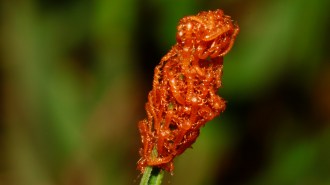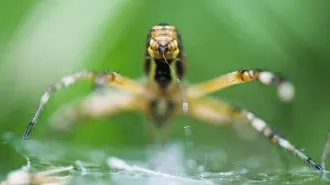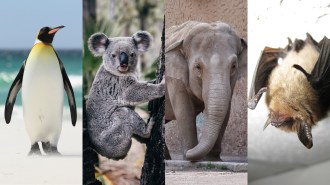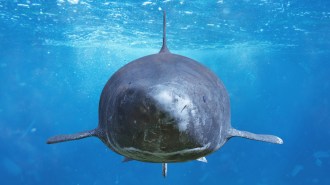Vampire bats share blood to make friends
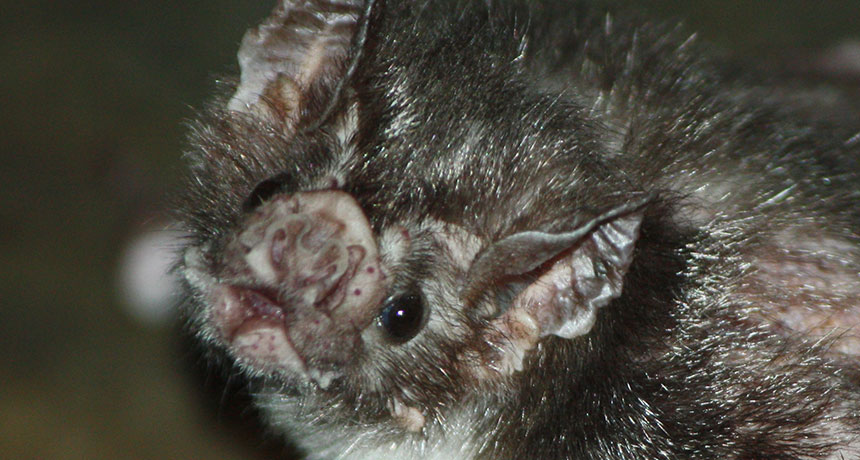
Vampire bats share blood meals with kin and nonkin alike. A new study shows that the behavior helps to build a bat’s social network.
Ltshears/Wikimedia Commons (CC-BY-SA 3.0)
- More than 2 years ago
As if vampire bats weren’t already freaky enough, they have a habit that is at once sort of sweet and sort of gross: These communal animals will share blood with hungry roost-mates in an action that “looks like they’re French kissing,” bat scientist Gerald Carter told Science News in 2013.
Carter, now at the Smithsonian Tropical Research Institute in Panama, began studying this behavior while a graduate student in Gerald Wilkinson’s lab at the University of Maryland in College Park. Wilkinson first reported in 1984 that vampire bats may share regurgitated blood with nonrelatives. At that time, some scientists thought that the sharing may be an example of altruism, while others thought that hungry bats may just be annoying their neighbors into feeding them.
Two years ago, Carter and Wilkinson appeared to rule out the harassment theory when they reported that donor bats were more likely to approach starving ones first. And now they’ve gathered evidence that being generous may help the bats widen their social network and ensure that they’ll get fed when they need some help.
When vampire bats share regurgitated blood with other bats, it looks a lot like a romantic act, as seen in this video montage. Bats that share have a wider social network to rely on when they’re in need, a new study suggests. G. Carter |
Carter and Wilkinson worked with a captive colony of vampire bats drawn from three zoos so they would have a combination of related and unrelated animals. From 2010 to 2014, the bats’ food sharing was recorded — who fed whom and how they were related (or not). Then the scientists conducted a series of trials in which they prevented a female from eating — so that she would be really hungry — and recorded which bats, if any, would feed her if her past donors, including close relatives, were either absent or also starving.
Bats that had previously been generous in feeding nonrelatives had more donors and received more food when they were in need, the researchers report November 18 in the Proceedings of the Royal Society B.
“Bats that are more generous are fed more when they fail to feed. They rely on a social support network, and in that way, the bats have something analogous to human friendship,” Carter explains on his website.
So is this really an example of altruism, as scientists suspected back in the 1980s? I don’t know. An altruistic act is a selfless one that is done for the benefit of others. Do vampire bats share with the knowledge that a wider social network may help them at sometime in the future? It’s difficult to know a bat’s motivation. But there seems to be a lesson here for us humans — helping out our friends is the smart thing to do.



